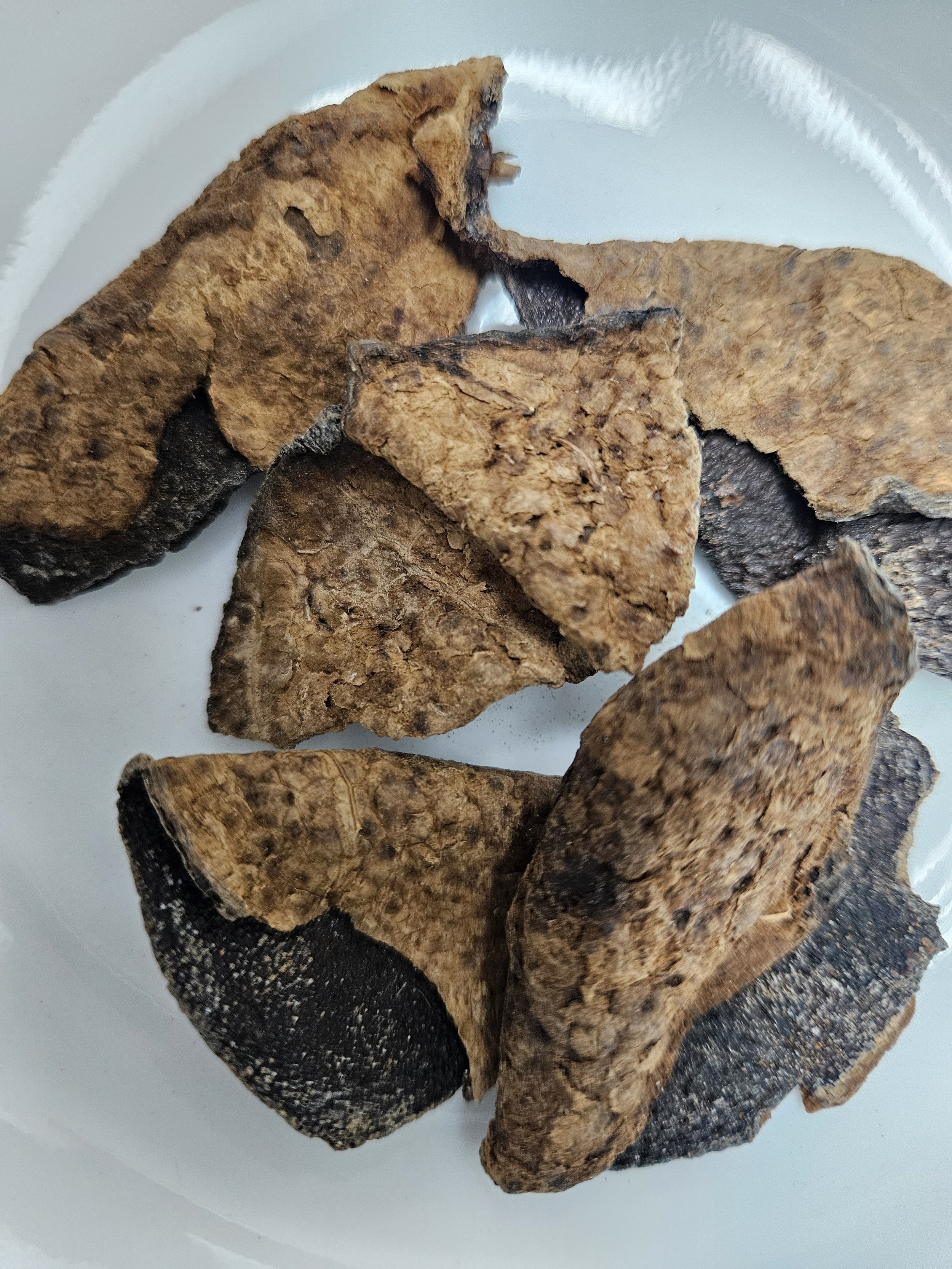5 (More) Chinese Herbs for Coughing
This blog should not be taken as medical advice. Most Chinese herbs are used in formula and not alone as a single herb. Please consult with your doctor before taking something new.
Xing Ren or Apricot Kernel is used for hot or cold conditions with cough. It is especially helpful for coughs that come with wheezing. This should not be used in high doses, as it can be toxic. It should also not be taken when experiencing diarrhea. Do not use with astragalus, pueraria or scutellaria root. Combine with Perilla seed for dry cough and constipation. Or Chrysanthemum and Mulberry leaf for wind-heat dry cough.
Chen Pi or Tangerine Peel is great for coughing that comes with chest congestion from phlegm. It can also benefit coughing that is a result of rebellious qi or acid reflux. This should not be used with dryness or heat conditions and/or dry cough. Chen Pi can be paired with Ginger for early stage cough and cold.
Gan Cao or Licorice Root can be used for hot or cold conditions, productive or non-productive coughs. It helps to moisten the lungs and strengthens the Spleen. It is a common herb in many herbal formulas for many conditions because of its harmonizing and detoxifying properties.
Jie Geng or Balloon Flower or Platycodon root is a great herb for cough that comes with phlegm, fever and sore throat. This herb often used in many formulas for sore throat or coughing. Contraindicated for those with chronic cough or coughing with bloody sputum. You should not eat pork while taking this herb. Jie Geng is in many Chinese cough and sore throat formulas.
Bai He or Lily Bulb is used for dry cough that can also be accompanied by insomnia, irritability or low grade fever post illness. This should not be used for coughs that come with colds or flu’s. This should not be taken when experiencing diarrhea. Bai He is often used with Bai Mu Er (White Tremella) in a popular skin nourishing dessert soup.
In Chinese Medicine, there are different kinds of coughs. Some are from chronic conditions, while some are from acute and exterior conditions. A Chinese Medicine doctor can help determine the type of cough you have and an appropriate blend of herbal medicine for your condition.
Recommended Products
You might also be interested in reading: 5 Chinese Herbs for Coughing, 5 Benefits of Echinacea, Sinus Congestion, Coughs and Colds
Written by Dr. Emily Siy, DACM on 1/31/25 posted on 3/31/25
Sources
Penner, Joel. American Dragon Website






